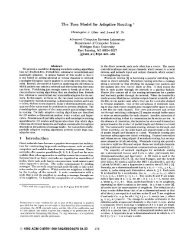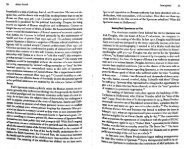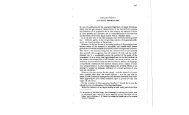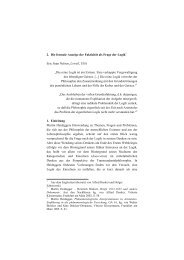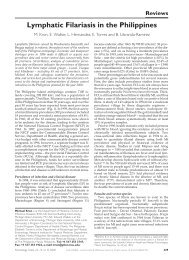Davis, Nakisha, Jill Gallin, Dawn Schuck, and Pamela Valera. 2009.
Davis, Nakisha, Jill Gallin, Dawn Schuck, and Pamela Valera. 2009.
Davis, Nakisha, Jill Gallin, Dawn Schuck, and Pamela Valera. 2009.
Create successful ePaper yourself
Turn your PDF publications into a flip-book with our unique Google optimized e-Paper software.
304 Affilia: Journal of Women <strong>and</strong> Social Work<br />
each month to have enough money to buy groceries. They discussed how they sought food<br />
pantries <strong>and</strong> soup kitchens in their neighborhood to survive. As the participants engaged in<br />
the process of documenting their lives, they discovered that their individual experiences of<br />
food insecurity did not differ from each other, but how they managed the process of events<br />
varied by the severity of their food insecurity.<br />
The degree of food insecurity depended on their living conditions. Several women with<br />
children who were living in shelters talked about the struggles of not having enough food<br />
for their children. These women learned to cut back on food or relied on food pantries <strong>and</strong><br />
soup kitchens to provide consistent meals. For others, gaining access to healthy foods was<br />
an ordeal, <strong>and</strong> healthy foods were often difficult to afford in their neighborhood. Overall,<br />
the women reported that they had to make frequent changes in the quality <strong>and</strong> quantity of<br />
their diets because of their limited food stamp budgets.<br />
Access to good-quality affordable food was a related theme. The participants viewed the<br />
high price of fresh fruits <strong>and</strong> vegetables as a constant roadblock to healthy lifestyles. For<br />
example, several participants talked about the desire to buy fruits <strong>and</strong> vegetables<br />
but reflected on the challenges of having to choose between other basic needs, as in the<br />
following comments:<br />
I want to buy healthy foods, but I got to pay the rent, pay the bills, <strong>and</strong> pay the baby-sitter. My<br />
one job is not going to do that. How do I live? (African American woman with three teenage<br />
children)<br />
As women, we need sanitary napkins, soap, <strong>and</strong> deodorant. And we can’t afford to buy it if we<br />
got to spend money on expensive foods like this. (Afro-Caribbean woman with one child)<br />
The participants struggled with the ability to buy healthy foods to feed themselves <strong>and</strong><br />
their children. The awareness of the high cost of fruits <strong>and</strong> vegetables in their local<br />
supermarkets surprised some participants. Referring to a photograph (see Figure 1), one<br />
participant spoke about the high cost of tomatoes. She stated, ‘‘I was shocked, eight<br />
tomatoes for $3.99—that’s outrageous for tomatoes.’’<br />
Several participants felt frustrated by the limited options in their local supermarkets:<br />
Bad. Angry sometimes? This stuff. I have to cook with it, just to get the nutrients stuff that<br />
I need to better me. But, oh man! That’s a lot of money. I just look at [it] <strong>and</strong> leave it alone.<br />
I need them, but I can’t buy them. (Afro-Caribbean woman with one child)<br />
I have two small children that I am trying to feed properly. It’s easy to open up a can of ravioli<br />
<strong>and</strong> give that to my kids. Is it healthy for them? Does it have all the vitamins <strong>and</strong> things to help<br />
them develop? No, it does not. My daughter she’s a vegetable fanatic, thank God, but some<br />
days I can’t buy her those strawberries because they’re $4.99. Before I had kids, I wasn’t one<br />
of those who likes to eat strawberries; that wasn’t my thing. If I had a taste for strawberries,<br />
I would get myself some strawberry preserves in a jar <strong>and</strong> get over myself. But, I don’t want<br />
to give my children all of that processed artificial sugar. She wants to eat a carton of<br />
strawberries, by all means eat them, but not at $4.99. ‘‘We can’t do it today, sweetie. Not<br />
today.’’ (African American woman with two children)<br />
The participants also stated that they must buy food that clearly does not have any<br />
nutritional value. They noted that they ‘‘just want to be able to cook a decent meal for their<br />
children.’’ Referring to a photograph (see Figure 2), another participant said, ‘‘I wanted to<br />
304<br />
Downloaded from aff.sagepub.com at UNIV MASSACHUSETTS LOWELL on September 23, 2011




